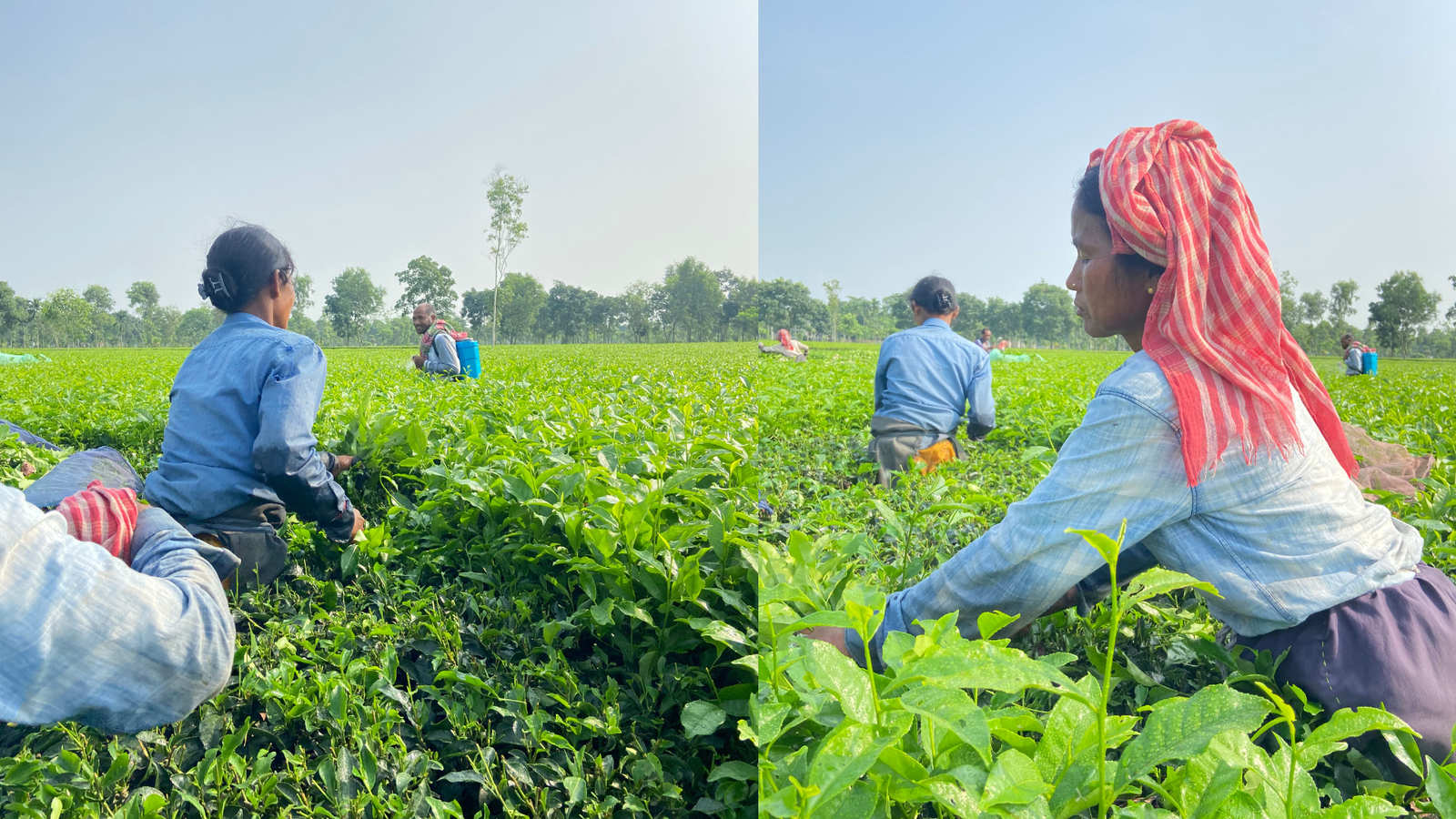In North Dinajpur's Islampur Sub-Division, it is 7:30 AM. The tea gardens, where groups of workers once predominately women used to gather with cloth bags and sickles, are covered in undulating green patches as the sun rises. However, men now predominate in this early field rush, not because women are unwilling but rather because they are no longer desired. A deeper, unsettling trend can be seen in the way the tea industry in North Dinajpur is evolving, especially with regard to the small tea gardens (STGs): the gradual and covert exodus of women from the tea industry, which was once their lifeline, as a result of uncontrolled mechanisation and a government that chooses to ignore the problem.
The tea industry in Islampur is fueled by thousands of small growers who own two to twenty bighas of land and serve as both employers and cultivators, in contrast to the massive corporate plantations of Dooars or Darjeeling. Approximately 9,486 of these growers are registered in the district by the Tea Board of India. However, reports from the ground indicate that the true number is much higher because many people choose not to register, claiming it is a burdensome bureaucratic process with no real benefits. Tea leaf plucking is a painstaking process that requires accuracy and care, and traditionally, women have played a key role in it. However, the STGs in Islampur employ a different technique: instead of picking two leaves and a bud, the tea leaves are cut in large quantities, much like when paddy is harvested. Workers with sickles made between ₹200 and ₹250 a day, or about ₹2 per kilogramme.
However, everything has changed with the introduction of mechanical cutting machines that cost between ₹1.2 and ₹1.6 lakh. The maximum amount of leaves that a human team can cut in a day is 400 kg, but a team of four men with two motorcycles and one machine can cut up to two tonnes. For the owner of a small garden, the incentive is obvious: why hire five women when three men and a machine can do it more quickly and affordably? The output is exponential; the costs are reduced.
The social cost of this change has been enormous. Women are being systematically excluded from the tea industry, which once provided them with at least some economic independence. "In the past, during the busiest time of year, we worked virtually every day. Parul Devi (name changed), a former Ramgarh employee, says, "Now, we sit at home, waiting for a call that rarely comes." All of the machine workers are men. We can't keep up with them because they ride far and move quickly.
The local office of the Tea Board dismisses these worries. One official assert, "There is no distinction; both men and women can work." However, this kind of bureaucratic blindness is risky. It is active neglect rather than "equal opportunity" when livelihoods disappear, women are forced back into unpaid caregiving and domestic work, and their economic agency is taken by machines.
This disregard is also systemic.
The price they receive for their tea is still unstable, even though many STGs benefit from rapid yields and growing local factories, particularly along the National Highway corridor. Under-regulated farming practices, excessive pesticide use to control pests and watering the leaves before cutting to increase weight are all common. This subpar quality frequently results in lower auction prices, but there is no accountability for the improper use of chemicals.
Unsettlingly, some STG owners also operate pesticide stores as side gigs, resulting in a closed supply and production cycle that harms the soil and its employees. In Islampur, one such owner openly acknowledged, "Growing tea without these chemicals is difficult." Everybody does it.
The government's silence in the face of all of this is deafening. For the displaced women, there are no alternative employment plans, no retraining programs, and no specific social protection.
These women now rely entirely on public welfare programs, which are inconsistent and inaccessible in many blocks, as they receive no PF, no gratuity, and little official acknowledgement for their labour. Even though the machinery is efficient, rural women, who were once the backbone of the tea industry, are paying the price for this efficiency. In households that rely solely on the earnings of men, they are now relegated to the role of unpaid housekeepers.
While there are still some female tea workers in Chopra Block, machines have replaced them in other areas of Islampur Sub-Division, pushing the women to the sidelines.
This is not merely a tale of manual labour versus machines. It concerns who is and is not valuable in our rural economy. It is evident that women have been priced out, pushed out, and eventually forgotten in the rush for greater yields and quicker profits. The STGs in Islampur serve as a warning about rural development. Mechanisation will only exacerbate already-existing disparities if gender-sensitive policies are not implemented. The government will have overseen the covert erasure of thousands of female workers if it does not take immediate action, including stringent oversight, job guarantees, retraining initiatives, and a reconsideration of agricultural methods. Dignity should never be sacrificed for progress. North Dinajpur's female employees are worthy of more than this betrayal.
Author: Atendriya Dana, Doctoral Researcher, Jadavpur University, Kolkata
{This article is based on the personal opinions of the author. News Ei Samay does not directly endorse any claims that may have been made here}











